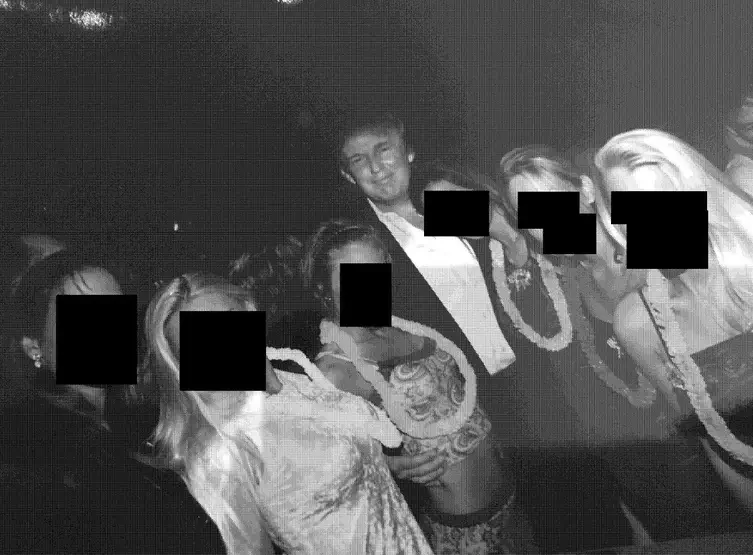By Anonymous
In mid-June, a student at Brown University started a “Feminist Taylor Swift” Twitter account, satirically rewriting Swift’s lyrics from the feminist perspective. Oddly enough, at the time, I was in the middle of writing a blog post titled “Taylor Swift’s Secret Feminism.”
Seeing Swift’s lyrics restructured to empower women made me realize my own hypocrisy. Who am I to call Taylor Swift out for only halfway fighting the feminist fight? I’m clinging onto any slight sign of feminism from a woman who is clearly not interested in empowering anyone other than herself. There is nothing secret about her antifeminism.
While Swift’s press team comes up with numerous excuses for the offensive lyrics and her outright denial of feminism in an interview with The Daily Beast, I’m going to brainstorm a few comments she might issue and systematically tear them apart:
1) “My lyrics aren’t sexist.”
Sexism is often the theme of Swift’s music. Constant references to fairytales and lost innocence are insulting to women who don’t desire pedestals and princes and the never-ending narrative of “he done me wrong” is not only grating, but places women in the role of injured puppies. Men should be equally insulted by her references to them as heartbreakers and terminators of innocence.
2) “So what if my lyrics are sexist? I’m not a feminist.”
Swift said in an interview, “I don’t really think about things as ‘guys versus girls.’ I never have. I was raised by parents who brought me up to think if you work as hard as guys, you can go far in life.” Swift’s problem isn’t that she doesn’t believe in the feminist cause, it’s that she needs to open a history book (and a dictionary). Perhaps successful pop stars are living in a post-feminist world, but the rest of us most certainly aren’t. A recent study indicated that women with college degrees on average make the same amount across their lifetimes as men without. Working just “as hard as guys” will not get you as far because of the unfortunate circumstances in our society.
3) “I’m trying to build a career. I don’t want to get too political.”
As an ex-musician, I’m fully aware of the sacrifices that come from pursuing a career in the performing arts. Aspiring singers are essentially products, and everything from their talent to their eye makeup and religious beliefs are critiqued. In the face of low pay and misogyny, they must put their political agendas aside; there are fifty other singers waiting in the wings.
But Taylor Swift is not a singer on the rise; she is an established star. Her debut album was released in 2006 when she was 16 years old. In 2009, she was the youngest artist to ever win the Grammy Award for Album of the Year, and her fourth album, “Red,” sold 1,208,000 copies in its first week in the U.S. She is one of the most successful recording artists of all time. If you want to talk about womanpower, talk about Taylor Swift. Her career is stable; a desire to not alienate new fans is no longer a good excuse.
4) “Who am I to impose my beliefs on other people?”
Taylor has made numerous statements about being a positive influence on her young fan base by dressing appropriately Shouldn’t this same sentiment apply to her public remarks? Being a public figure doesn’t mean you have to be a beacon for social change, but when you have this kind of power, why wouldn’t you want to use it for good? Swift’s denouncement of feminism may seem like a trivial topic, but when she denies feminism, young women are picking up on that message.
But I’m hopeful: In an interview with Vanity Fair, Swift (unknowingly) quoted Madeleine Albright: “There’s a special place in hell for women who don’t help other women.” And when asked why she “only writes about boys,” Swift said, “For a female to write about her feelings, and then be portrayed as some clingy, insane, desperate girlfriend in need of making you marry her and have kids with her, I think that’s taking something that potentially should be celebrated — a woman writing about her feelings in a confessional way — that’s taking it and turning it and twisting it into something that is frankly a little sexist.”
Perhaps I’ve been too harsh on Taylor Swift. Instead of casting bad leaders aside, let’s encourage them to be better. Taylor, I’m starting with you: Think of the media buzz it would create if you publicly endorsed a political candidate or made a statement about reproductive rights. If you told young girls to eat peanut butter smothered in mustard, they probably would. More realistically, if you told young girls to speak up and take action, they would probably listen. It’s time to own your platform.
